Centres of expertise
Liryc has several centres of expertise or reference centres, which bring together a highly specialized hospital team developing its activity in the fields of patient care, education-training and research.
This medical team also integrates paramedical, psychological, medico-social, educational and social skills to organize patient care in conjunction with all the affected health professionals.
The Remote Monitoring Centre for chronic diseases and connected devices
An expert centre in remote monitoring
Inaugurated in May 2022, the Remote Monitoring Centre makes it possible to pool a paramedical team dedicated to this activity across the university hospital centre, in direct contact with the medical teams of various specialties: cardiology, pneumology, neurology and diabetes initially.
The Remote Monitoring Centre provides a common platform, enabling regular and complete follow-up of patients, with a greater number of monitored parameters. Follow-up is based on the fluidity of exchanges between the different healthcare professionals of the different specialities, coordinated by a competent team on the different legal (traceability and data protection) and practical aspects of this new modality.
A real turning point in the care of patients with chronic diseases, remote monitoring offers more optimal quality and safety of care.
The Remote Monitoring Centre also opens up enormous prospects in terms of research by giving access to more parameters to better understand chronic diseases, such as heart rhythm disorders, for the direct benefit of patients.
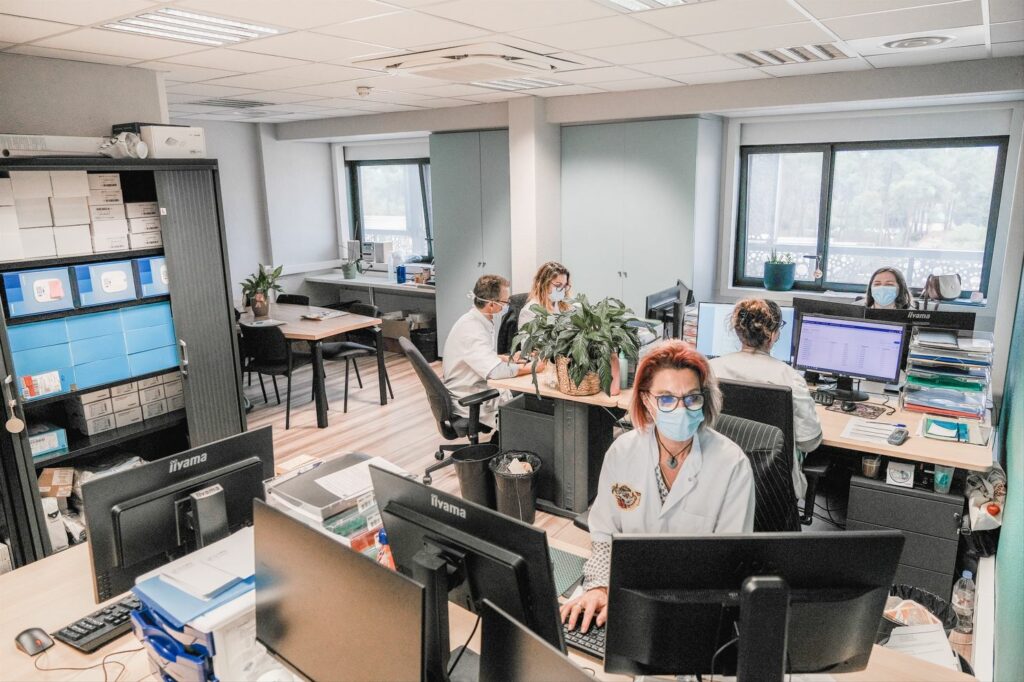
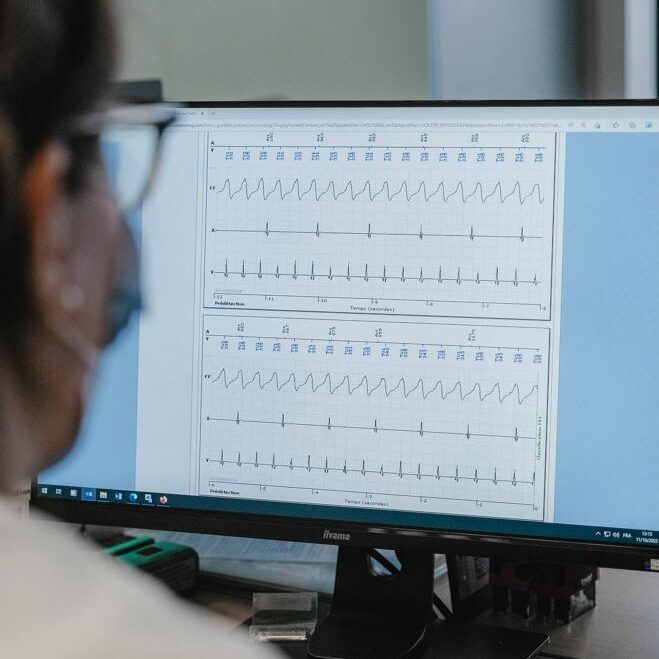
How does remote monitoring work?
Remote monitoring enables medical professionals to interpret remotely, through the use of a digital medical device placed in the patient’s home, the patient’s health data and to make decisions relating to their care. By allowing healthcare teams to remotely interpret data necessary for the medical follow-up of patients and, if necessary, to take decisions relating to their care, remote monitoring is an important way of improving the quality and efficiency of patient care. Above all, it also aims to improve the quality of life, by preventing complications, and thanks to providing care as close as possible to the place of residence.
Remote monitoring of heart rhythm disorders
Remote monitoring of implantable heart prostheses began in France in 2001 after the implantation of the first remotely communicating pacemaker in Bordeaux.
Thanks to the approval of new tools, such as connected devices and the use of artificial intelligence, the stimulation and remote cardiology teams of the University Hospital of Bordeaux attached to the Liryc institute, have recorded the highest activity of remote monitoring in cardiology to date in France, with more than 7,500 patients monitored with implantable cardiac defibrillators.
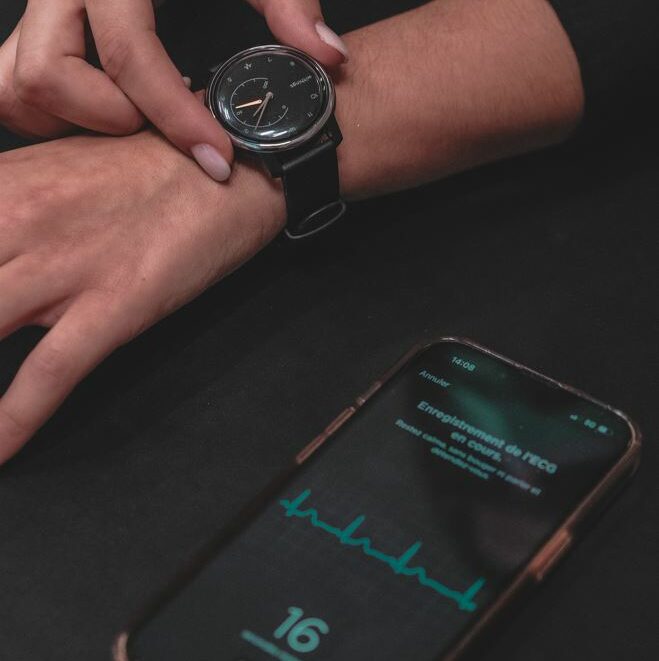
CMARY, the reference centre for hereditary rhythm disorders
Cmary – the Hereditary Heart Rhythm Disorder Reference Centre – takes care of patients with hereditary rhythm disorders (Brugada Syndrome, long QT, arrhythmogenic dysplasia of the right ventricle, etc.) and patients at risk of sudden death.
It is located in the cardiological hospital of Haut-Lévêque and benefits from the resources of the department of Prof. Haïssaguerre. Designated a Centre of Competence since 2008, it obtained its accreditation in May 2017 and is part of the Cardiogen national healthcare sector. In 2022, the Centre also received accreditation from the European Reference Network (ERN) in recognition of the excellence of the medical organization.
Improving the care of patients with hereditary rhythm disorders
The mission of the centre is to improve the care of patients with hereditary rhythm disorders by:
- Providing them the benefit of optimal care throughout the region.
- Guaranteeing them clear medical information, as well as the health professionals who will be called upon to take care of them.
- Ensuring that family screening is correctly carried out and that molecular biology data are made available to patients, their families and healthcare personnel.
- By setting up or participating in studies aimed at improving understanding and therapeutic strategies in these pathologies.
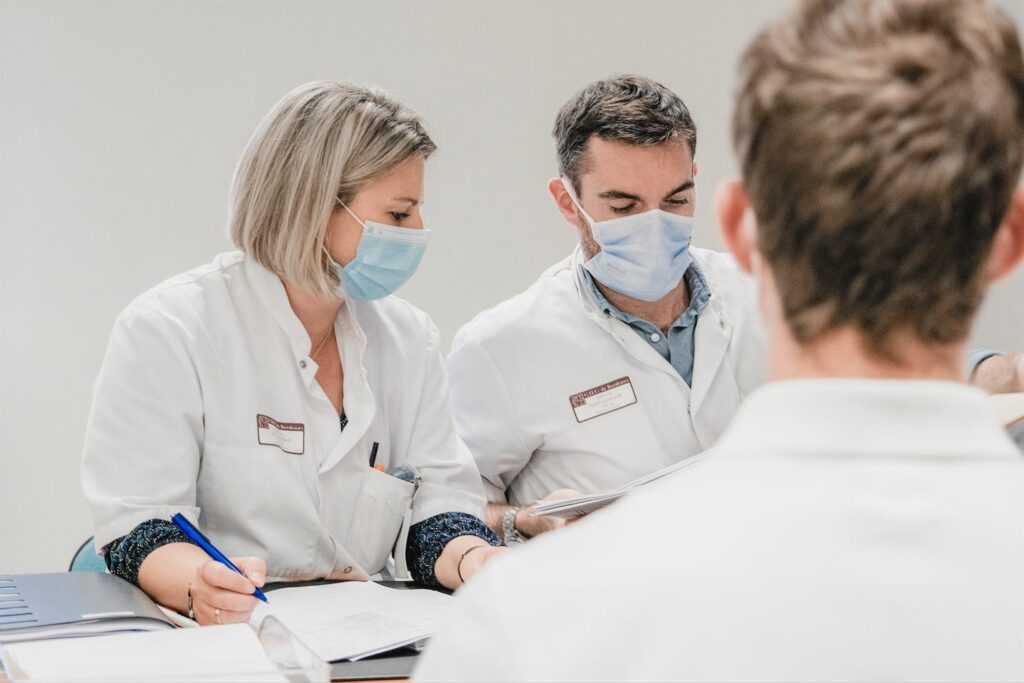
The team, led by Prof. Frédéric Sacher, has been working on these themes for a very long time so as to optimize their understanding of the causes of ventricular arrhythmia (main cause of sudden death), to develop innovative therapies and to ensure better care for these patients.
Since the early 2000s, the team has organized and standardized the care of these patients in the Aquitaine region of France. Family screening for patients with hereditary rhythm disorder has also been set up thanks to the collaboration with Prof. Caroline Thambo (genetics department) and the establishment of joint consultations (cardiologist and geneticist). For further information, click here.
Following the development of interventional techniques for the treatment of ventricular arrhythmias, the centre receives patients from all over mainland France, overseas territories and even from Europe for the treatment of the most complex cases.
Inform, train, raise awareness of hereditary rhythm disorders
The centre is also invested in prevention through the training of patients, doctors and cardiologists through post-university teaching, training days, congresses, patient days.
A website and a digital platform is also available for doctors to enable them to familiarize themselves with the electrocardiogram aspects making it possible to identify these pathologies, or more generally in the field of electrophysiology, ablation and cardiac stimulation. (http://pacingdefibrillation.com and www.liryc-education.fr).
Similarly, within the Cardiogen sector, the team has contributed to the development of documents (available on the internet: http://www.filiere-cardiogen.fr) for the information and care of patients with hereditary rhythm disorders.
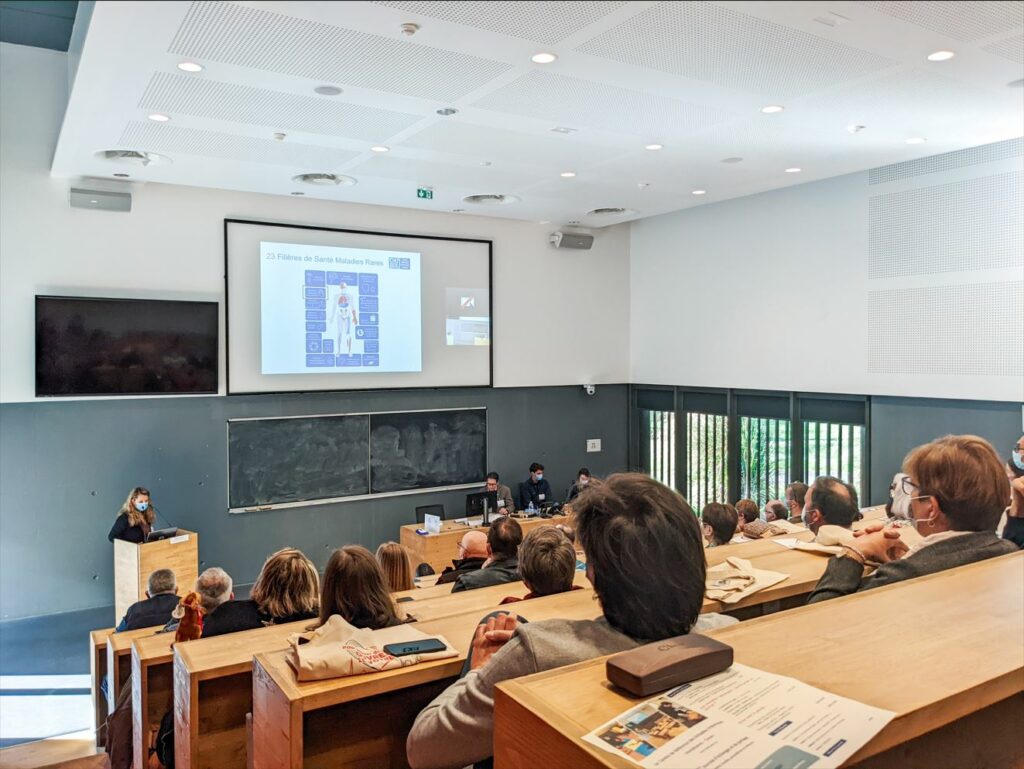
The M3C complex congenital heart disease reference centre
Congenital heart defects affect one in 100 new-borns, but their great diversity and complexity make them rare diseases. Accredited in 2017, the M3C Reference Centre for Complex Congenital Cardiac Malformations coordinates the medical and surgical treatment of these diseases in France.
The congenital cardiovascular diseases department of Prof. Jean-Benoît Thambo provides governance of the network with the coordinator site in Paris Necker and two other constituent sites (Hôpital Européen Georges-Pompidou, Paris and Hôpital Marie Lannelongue, Le Plessis Robinson).
A total of 21 centres play a role of multidisciplinary expertise, from prenatal diagnosis to adulthood, relying on a state-of-the-art technical platform to enable the best care of patients.
The Bordeaux centre works on several key missions:
- Training, initial and continuous, of health professionals but also of patients and families, in collaboration with patient associations: to improve care and hospitalization conditions.
- Basic and clinical research: to better understand and identify the mechanisms at the origin of these pathologies.
- Patient care: by also developing access to the expertise of the network with the establishment of international collaborations.
The network is today the largest medical and surgical centre for congenital and paediatric cardiology in the European community.